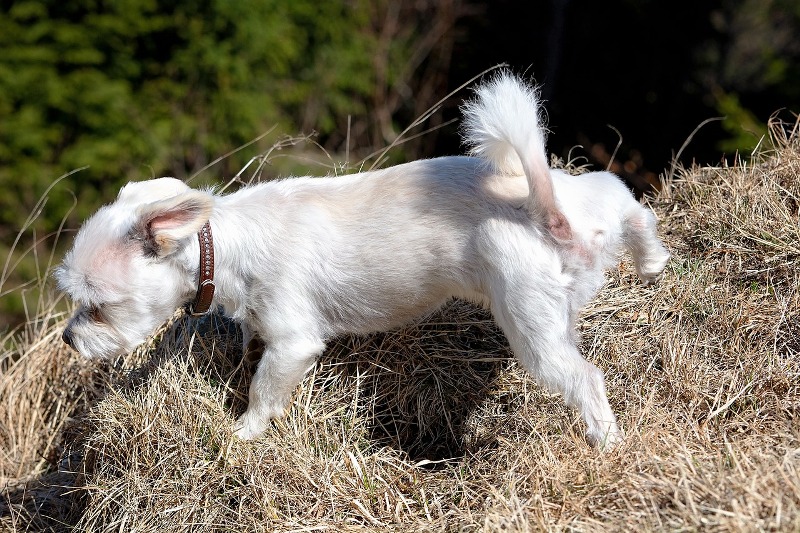
For dog lovers and owners, observing the behavior of their furry companions is both fascinating and sometimes puzzling. One common behavior that often raises questions and eyebrows is territorial marking. Why do dogs feel the need to leave their scent everywhere they go? This behavior, deeply rooted in their instincts, plays a crucial role in canine communication and social structure.
The Instinctual Basis of Territorial Marking
Territorial marking is an instinctive behavior in dogs, stemming from their ancestral roots. In the wild, canines use urine marking to establish territory, communicate with other dogs, and assert their dominance. This behavior is not just about claiming space; it’s a complex form of communication that’s as important to them as our verbal and non-verbal communication is to us.
Both male and female dogs mark territory, although it’s more common in males. The act of marking involves depositing a small amount of urine on vertical surfaces, such as trees, poles, and even furniture. This scent marking carries a wealth of information about the dog, including age, sex, health, and reproductive status.
The Role of Scent in Canine Communication
Dogs have an incredibly keen sense of smell, far superior to humans. Their world is largely experienced through their noses. Scent marking allows them to receive and convey information without direct contact. When a dog sniffs a spot that’s been marked by another dog, they gather essential details about that dog. This can influence their behavior, determining whether they feel comfortable in that space or if they sense a threat.
Marking as a Social and Behavioral Tool

Territorial marking is also a social behavior. It’s a way for dogs to establish their presence and assert dominance or establish hierarchy within a pack. In a household with multiple dogs, you might notice that one dog marks more frequently, asserting themselves as the ‘alpha’ of the pack.
However, it’s crucial to understand that marking is not always about dominance. It can also be a response to anxiety or insecurity. Dogs that feel threatened or stressed might mark more frequently as a way to reassure themselves.
Health-Related Aspects of Marking
While territorial marking is a normal behavior, excessive marking can sometimes indicate health issues. Conditions like urinary tract infections or bladder stones can lead to increased marking. If your dog suddenly starts marking more than usual, a vet visit is advisable to rule out any health concerns.
Moreover, neutering or spaying your dog can significantly reduce territorial marking. These procedures minimize the hormonal influences that drive this behavior, especially in males.
Training and Managing Marking Behavior
Training and managing marking behavior is crucial, especially for indoor dogs. Consistent training and positive reinforcement can help. Discourage marking inside the house by interrupting the behavior and redirecting your dog’s attention. Ensuring your dog has regular bathroom breaks and ample outdoor time can also reduce the urge to mark indoors.
For dogs that mark due to anxiety, identifying and addressing the source of stress is key. Sometimes, changes in the environment, like new pets, new people, or even new furniture, can trigger this behavior.
A Deeper Understanding Leads to Better Relationships
In conclusion, understanding the reasons behind your dog’s territorial marking is crucial in building a harmonious relationship with your canine friend. Recognizing that this behavior is a natural form of communication and not just a disobedient act can help you approach it with more empathy and effectiveness. By addressing the underlying causes, whether they be social, behavioral, or health-related, you can help manage this behavior, ensuring a happy, healthy, and well-adjusted pet.
Territorial marking is just one aspect of the complex and fascinating world of canine behavior. By continuing to learn and understand these behaviors, we strengthen the bond we share with our four-legged companions, making our shared lives richer and more rewarding.






